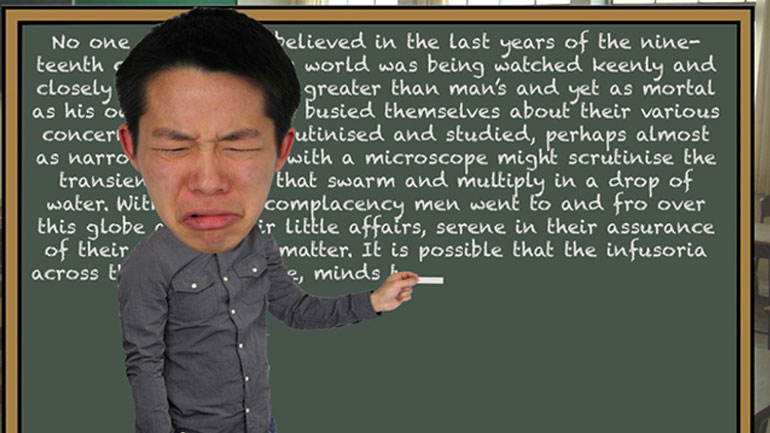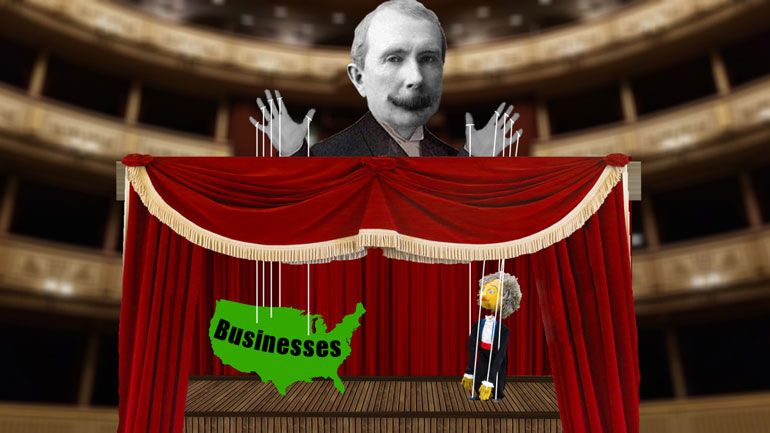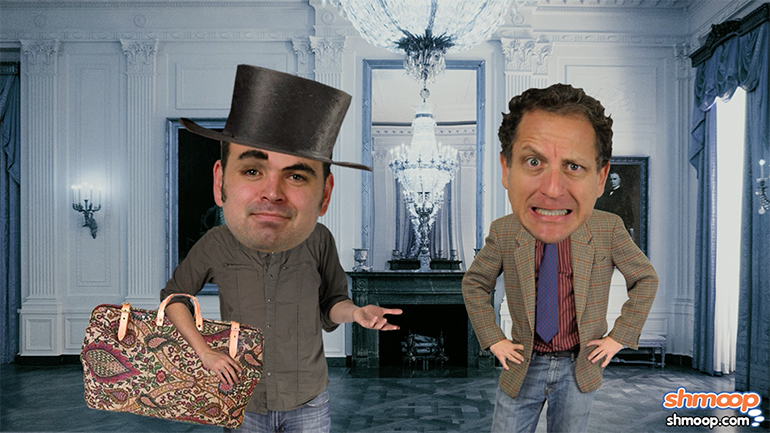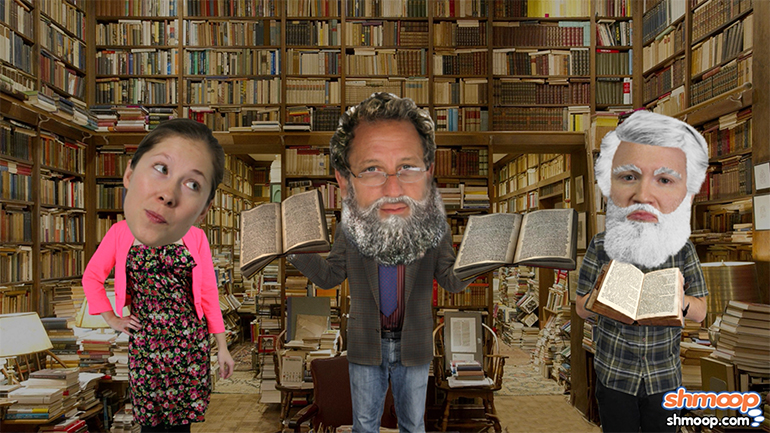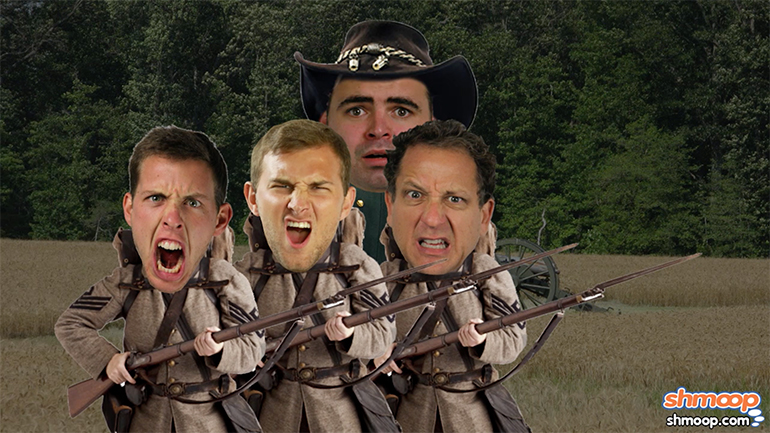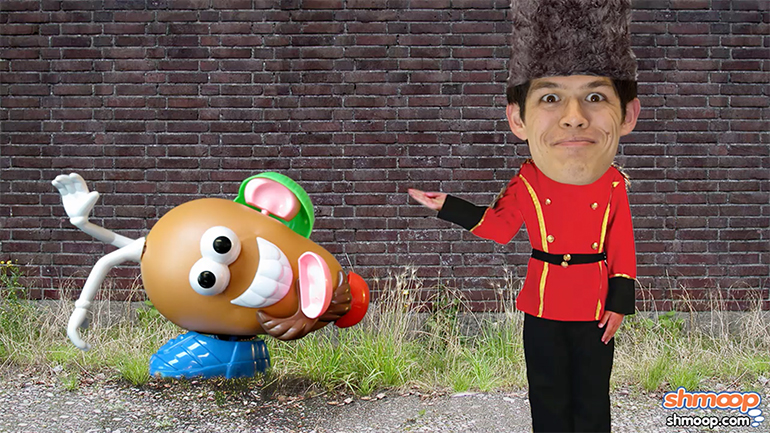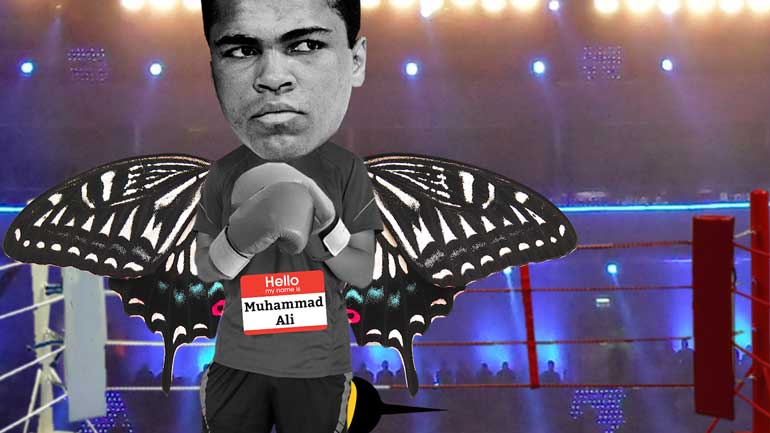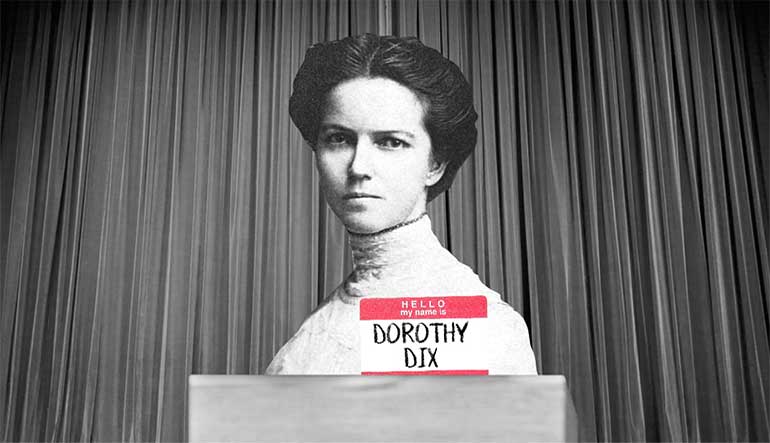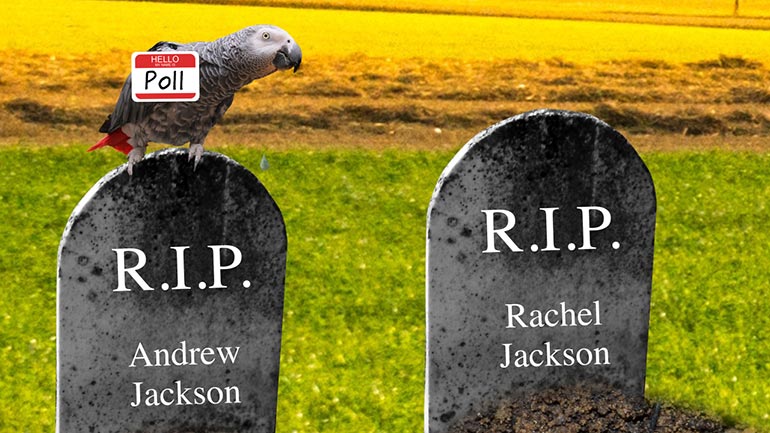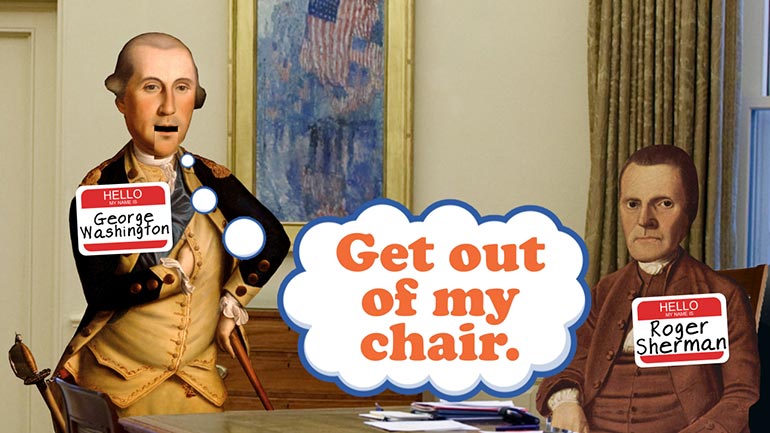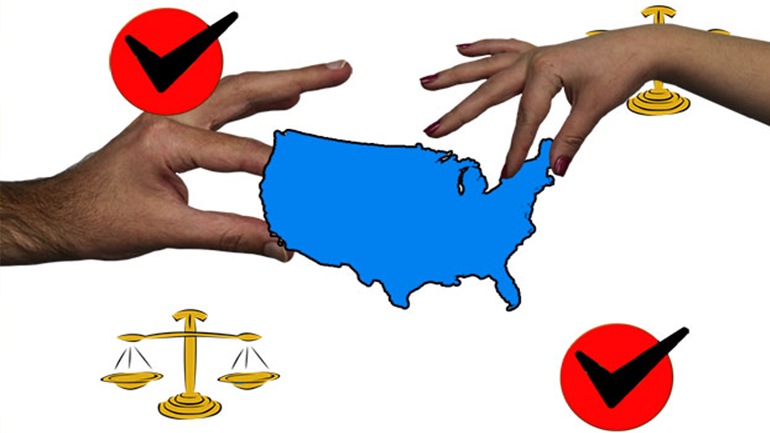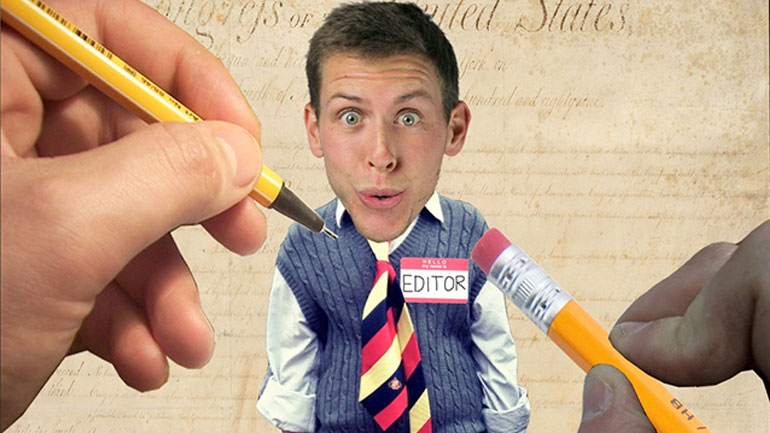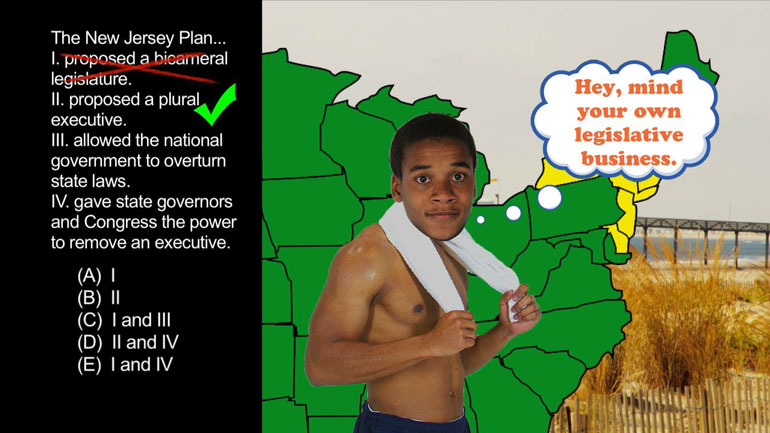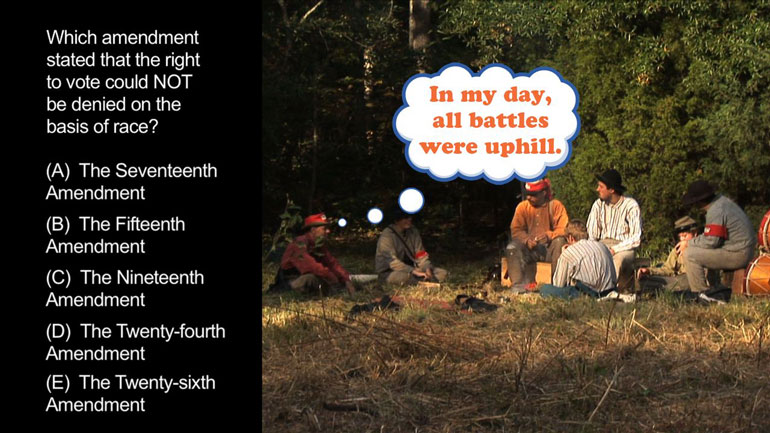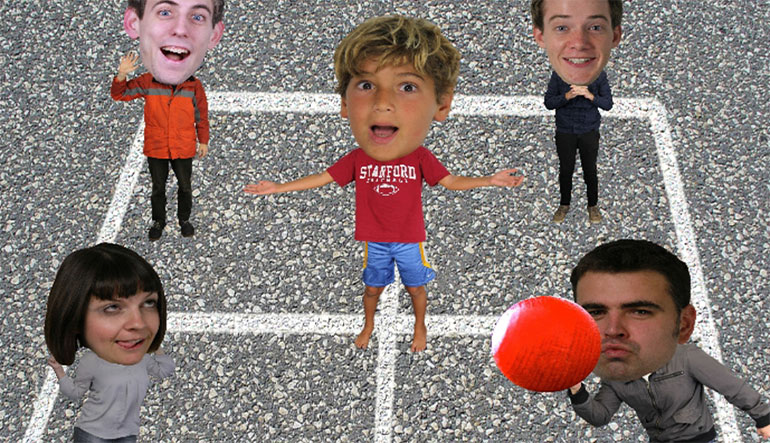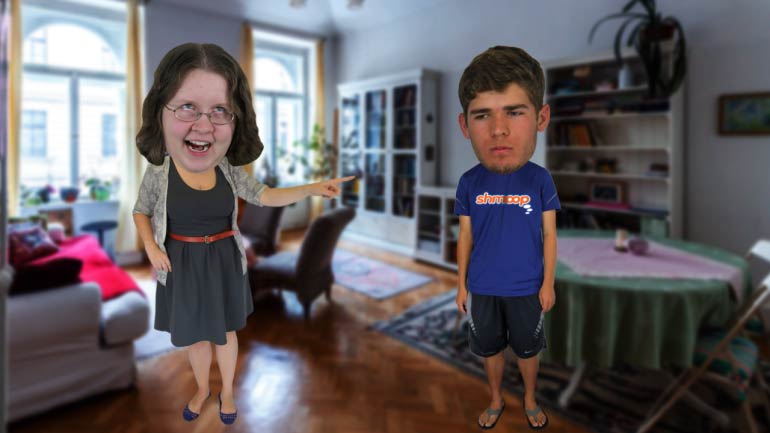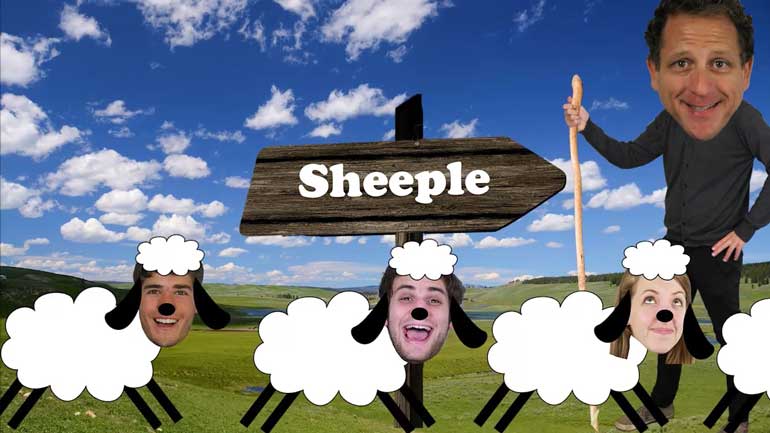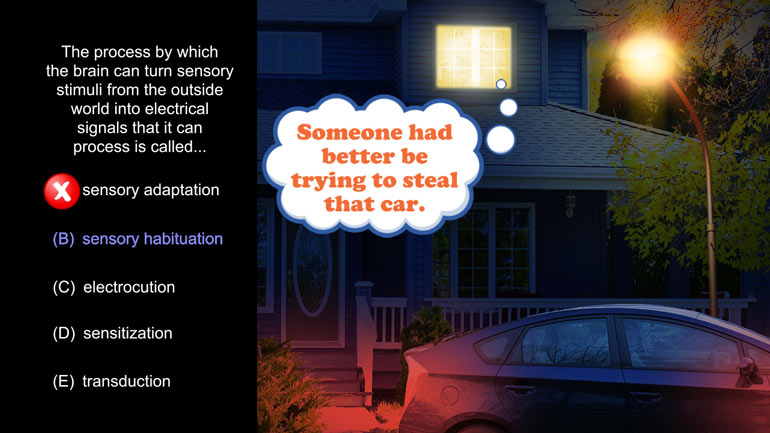ShmoopTube
Where Monty Python meets your 10th grade teacher.
Search Thousands of Shmoop Videos
Social Studies Videos 2409 videos
GED Social Studies 1.1 Civics and Government
Ever heard of a "living document"? They eat and breathe just like the rest of us! They even walk around on their own two legs. Okay, fine—maybe t...
AP Psychology 3.3 Developmental Psychology 45 Views
Share It!
Description:
AP Psychology 3.3 Developmental Psychology. In which stage does a person decide their work-life balance and how to have healthy relationships?
Transcript
- 00:04
and here's your shmoop du jour brought to you by guilt you don't have
- 00:07
to watch this video it's not like we worked really hard on it or anything [Woman points to boy]
- 00:11
just to leave us here you know all by our lonesome it's fine well here's the
- 00:16
question Erik Erikson proposed eight stages of psychosocial development in
- 00:20
which stage does a person decide their work-life balance and how to have
Full Transcript
- 00:24
healthy relationship and here are potential answers... alright Erik Erikson believes that each
- 00:32
stage of one's development was marched by one big conflict once that conflict [Erik Erikson appears in classroom]
- 00:37
was resolved a virtue is gained and the person then moves on to the next stage
- 00:41
well Erikson basically looked at life like a video game there's a big boss
- 00:45
fight at the end of each level and you get a special power up once you beat him [Men fighting by train tracks]
- 00:49
a metaphor that only extend from so far after all if you die in real life you
- 00:53
keep the regeneration we're looking for the stage that deals with the work-life
- 00:59
balance but is it a trust versus mistrust smackdown
- 01:04
well seeing as this stage occurs during infancy we hope not to be an awful lot [Baby walking along tight rope]
- 01:09
at the one-year-old doula learn to manage their workload while
- 01:13
simultaneously trying to sort out the whole walking and talking bang well this [Infant falls over]
- 01:17
stage is all about learning to trust their caregiver and develop a sense of
- 01:20
both about the world uplifting sure our answer shall beat industry versus
- 01:27
inferiority occurs during the school ages five to 12 well during this period
- 01:31
children learn to read and write pure groups become increasingly important in [Boy reading a book]
- 01:35
children begin to seek approval from those around
- 01:38
it's about feeling industrious or worthwhile as both do inferior doing so
- 01:43
will lead to the virtue of competency and while this one definitely makes
- 01:47
sense what's more industrious than a six year
- 01:50
old turning the deep crevices of his nose into a gold mine that's not our icy [Boy picking his nose]
- 01:56
initiative versus guilt most occurs during the plague ages of three to five
- 02:01
and describes the conflict between wanting to initiate play and assert [Children running]
- 02:05
themselves with their peers in order to make friends and a sense of guilt the
- 02:10
child may feel about being annoying others you know you're thinking is it
- 02:14
possible for some people skip this step well yeah according to Eriksen its possible
- 02:19
to skip a step and return to it at a later time which totally explains Larry [Larry appears in staff room]
- 02:23
for marketing so Mike never returns as well at any rate this date sleep is a
- 02:28
virtue of purpose and it does it with the question e identity versus role
- 02:32
confusion comes during adolescence and really does sum up the adolescent
- 02:37
experience it's that time in your life when you're looking to find your own
- 02:40
identity to see how you fit into the world in terms of career relationships [Girl looks at herself in a mirror]
- 02:43
family housing and so on success in this stage leads for the virtue of fidelity
- 02:48
and while it's the basis of basically every single cliche coming-of-age movie
- 02:52
in the world it's not our answer so that leaves us with the intimacy versus [Man watching movie with 3D glasses]
- 02:57
isolation well this last for more or less all of adulthood and its defined by
- 03:01
the struggle to figure out how much time one needs to dedicate to themselves
- 03:05
versus to others this is when healthy relationships are developed doing so
- 03:10
results in the virtue of love while failing to do so may result in social
- 03:14
isolation which you wouldn't want to wish upon anyone not even Barry [Barry alone in a room]
Related Videos
AP Psychology 2.2 Social Psychology. Which of the following was an independent variable manipulated in Asch's research?
AP Psychology 1.1 Personality. According to Freud, these three parts of personality are constantly in conflict.
AP Psychology 1.1 Sensation and Perception. The process by which the brain can turn sensory stimuli from the outside world into electrical signals...
AP Psychology 1.1 Social Psychology. Which of the following best describes social psychology?
AP Psychology 1.1 States of Consciousness. Who conducted research on REM sleep deprivations?







